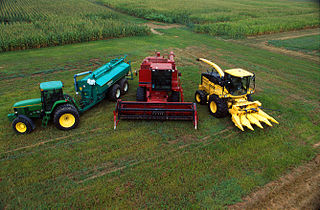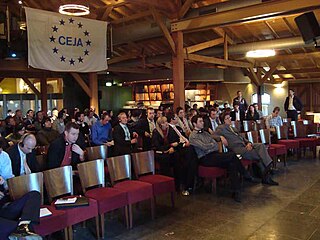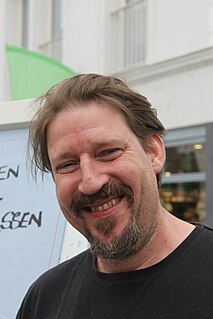Related Research Articles

The Common Agricultural Policy (CAP) is the agricultural policy of the European Union. It implements a system of agricultural subsidies and other programmes. It was introduced in 1962 and has since then undergone several changes to reduce the EEC budget cost and consider rural development in its aims. It has, however, been criticised on the grounds of its cost and its environmental and humanitarian effects.

An agricultural subsidy is a government incentive paid to agribusinesses, agricultural organizations and farms to supplement their income, manage the supply of agricultural commodities, and influence the cost and supply of such commodities. Examples of such commodities include: wheat, feed grains, cotton, milk, rice, peanuts, sugar, tobacco, oilseeds such as soybeans and meat products such as beef, pork, and lamb and mutton.

The Department for Environment, Food and Rural Affairs (Defra) is the government department responsible for environmental protection, food production and standards, agriculture, fisheries and rural communities in the United Kingdom of Great Britain and Northern Ireland. Concordats set out agreed frameworks for co operation, between it and the Scottish Government, Welsh Government and Northern Ireland Executive, which have devolved responsibilities for these matters in their respective nations.

The Common Fisheries Policy (CFP) is the fisheries policy of the European Union (EU). It sets quotas for which member states are allowed to catch each type of fish, as well as encouraging the fishing industry by various market interventions. In 2004 it had a budget of €931 million, approximately 0.75% of the EU budget.

Mariann Fischer Boel is a Danish politician, serving as European Commissioner for Agriculture and Rural Development from 2004 to 2009. A member of the party Venstre, she had previously been minister of agriculture and foods since 2002, in the government of Anders Fogh Rasmussen.
England Rural Development Programme is the instrument by which the UK Department for Environment, Food and Rural Affairs (Defra) fulfills its rural development obligations in England, as set out by the European Union. It is derived primarily from Council Regulation European Union Regulation No. 1257/1999 and the related successive implementing Commission Regulations.
The Committee on Fisheries (PECH) is a committee of the European Parliament.

The Directorate-General for Agriculture and Rural Development is a Directorate-General of the European Commission. The DG AGRI is responsible for the European Union policy area of agriculture and rural development. The work of the DG AGRI is closely linked with the Common Agricultural Policy (CAP).

The Department of Agriculture, Food and the Marine is a department of the Government of Ireland. The mission of the department is to lead the sustainable development of a competitive, consumer focused agri-food sector and to contribute to a vibrant rural economy and society. It is led by the Minister for Agriculture, Food and the Marine who is assisted by two Ministers of State.
The Department of Agriculture, Environment and Rural Affairs (DAERA) is a government department in the Northern Ireland Executive, the devolved administration for Northern Ireland. The minister with overall responsibility for the department is the Minister of Agriculture, Environment and Rural Affairs. The department was called the Department of Agriculture and Rural Development between 1999 and 2016. The Minister of Agriculture previously existed in the Government of Northern Ireland (1921–1972), where the department was known as the Department of Agriculture for Northern Ireland or the Ministry of Agriculture. The current Minister is Edwin Poots MLA and the department's Permanent Secretary is Denis McMahon.

The Commissioner for Agriculture is a member of the European Commission. The post is currently held by Commissioner Janusz Wojciechowski. The post is in charge of rural issues including most notably the controversial Common Agricultural Policy (CAP) which represents 44% of the EU budget. They also participate in meetings of the Agriculture and Fisheries Council (Agrifish) configuration of the Council of the European Union.
The European Agricultural Fund for Rural Development (EAFRD) is one of the European Structural and Investment Funds which was set up for the financing of Rural Development Programme (RDP) actions by European Union Council Regulation (EC) No 1290/2005 of 21 June 2005 on the financing of the Common Agricultural Policy (CAP).

Hill farming or terrace farming is an extensive farming in upland areas, primarily rearing sheep, although historically cattle were often reared extensively in upland areas. Fell farming is the farming of fells, a fell being an area of uncultivated high ground used as common grazing. It is a term commonly used in Northern England, especially in the Lake District and the Pennine Dales. Elsewhere, the terms hill farming or pastoral farming are more commonly used.

The Conseil Européen des Jeunes Agriculteurs (CEJA) is an umbrella organisation gathering young farmers from all over Europe and is one of the key advocates for the agricultural sector in Europe. This non-profit organisation has, at present, 28 member organisations and one observer members from EU member states, representing around one million young farmers. Its office is located in Brussels.

Agriculture and horticulture in Flanders has traditionally a familial character, but just like agriculture in other regions, is increasingly characterised by an increase in scale, modernisation and expansion. In Flanders, intensive sectors constitute the largest segment of agriculture: pig breeding, poultry and dairy farming, vegetables and fruit, ornamental plant culture. In Wallonia, the French-speaking part of Belgium, the emphasis is more on arable farming and extensive soil-based cattle breeding.

Elisabeth Köstinger is an Austrian politician who has been serving as Minister for Agriculture, Sustainability and Tourism in the government of Chancellors Sebastian Kurz, Alexander Schallenberg, and Karl Nehammer since 7 January 2020. She previously served in this capacity from December 2017 until June 2019. She is a member of the Austrian People's Party, part of the European People's Party.

The Agriculture and Fisheries Council (AGRIFISH) is one of the configurations of the Council of the European Union and is composed of the agriculture and fisheries ministers of the 27 European Union member states. Its competencies include the Common Agricultural Policy (CAP) and the Common Fisheries Policy (CFP), among others.

Thomas Waitz is an Austrian ecological farmer, forester, and politician for the Greens Party. He has served as a board member for the European Green Party (EGP) since March 2017 and has been a member of the European Parliament since November 2017, after Ulrike Lunacek's resignation. After the 2019 European Parliament election, he lost his mandate until Brexit took place on 31 January 2020 and he received a new mandate for Austria. He has been the co-chair of the European Green Party together with Evelyne Huytebroeck since 10 November 2019.
Manuela Ripa is a German lawyer and politician of the Ecological-Democratic Party, ÖDP. Since 16 July 2020, she has been a member of the European Parliament.
References
- ↑ European Parliament, Committee on Agriculture and Rural Development, accessed 19 June 2022